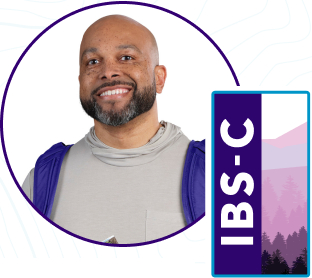References: 1. Lacy BE, Mearin F, Chang L, et al. Bowel disorders. Gastroenterology. 2016;150:1393-1407. doi:10.1053/j. gastro.2016.02.031 2. Lacy BE, Pimentel M, Brenner DM, et al. ACG clinical guideline: management of irritable bowel syndrome. Am J Gastroenterol. 2021;116(1):17-44. doi:10.14309/ajg.0000000000001036 3. LINZESS. Prescribing Information. AbbVie Inc.; 2023. 4. Data on File. AbbVie Inc. 5. Kanazawa M, Palsson OS, Thiwan SIM, et al. Contributions of pain sensitivity and colonic motility to IBS symptom severity and predominant bowel habits. Am J Gastroenterol. 2008;103(10):2550-2561. doi:10.1111/j.1572-0241.2008.02066.x







